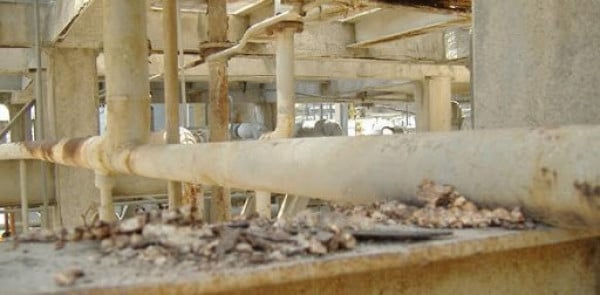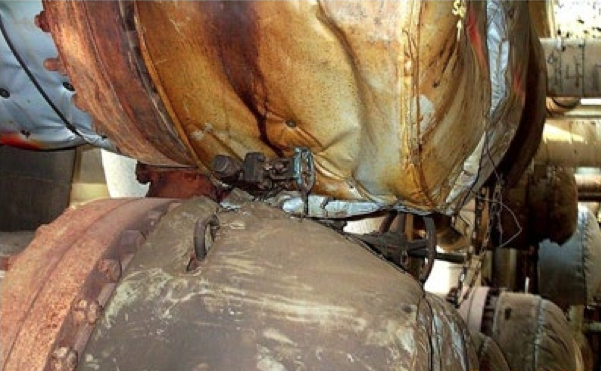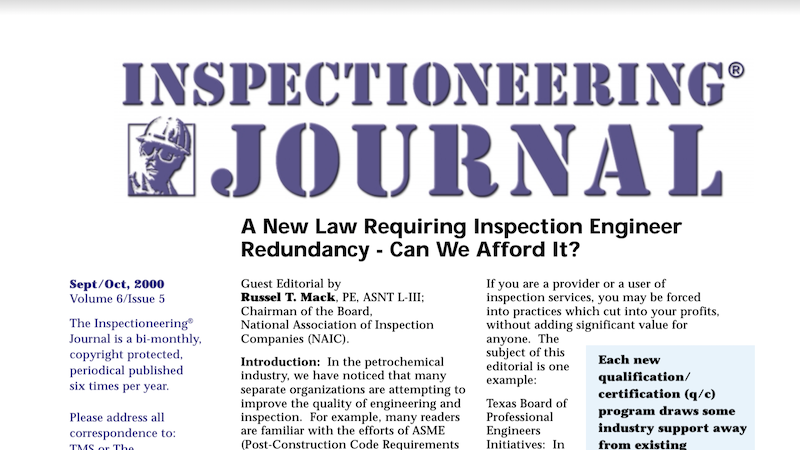In the refining and chemical processing industries, Small Bore Piping (SBP) is generally process piping that is two inches or less in diameter. Small bore piping typically branches off of the main process piping and is often used as relief lines and drain piping.
The refining industry has had a history of failures occurring in small bore threaded pipe connections. These connections are subject to several different types of damage, including but not limited to: fatigue cracking, stress corrosion cracking (SCC), corrosion under insulation (CUI), and accelerated erosion/corrosion of the pipe wall. This is due to a combination of internal and external corrosion forces acting on small diameter, thin walled pipe connections, as well as fluid turbulence and crevice corrosion acting on threaded connections.
Although SBP failures are not as likely to lead to major process safety incidents as the failure of larger primary piping, numerous instances have been reported where the failure of SBP led to reliability impacts (process unit shutdown) or large fires, when secondary effects of the ensuing fire caused the failure of other larger pipe and vessels.
Relevant Links
Topic Tools
Share this Topic
Contribute to Definition
We welcome updates to this Integripedia definition from the Inspectioneering community. Click the link below to submit any recommended changes for Inspectioneering's team of editors to review.
Contribute to Definition























